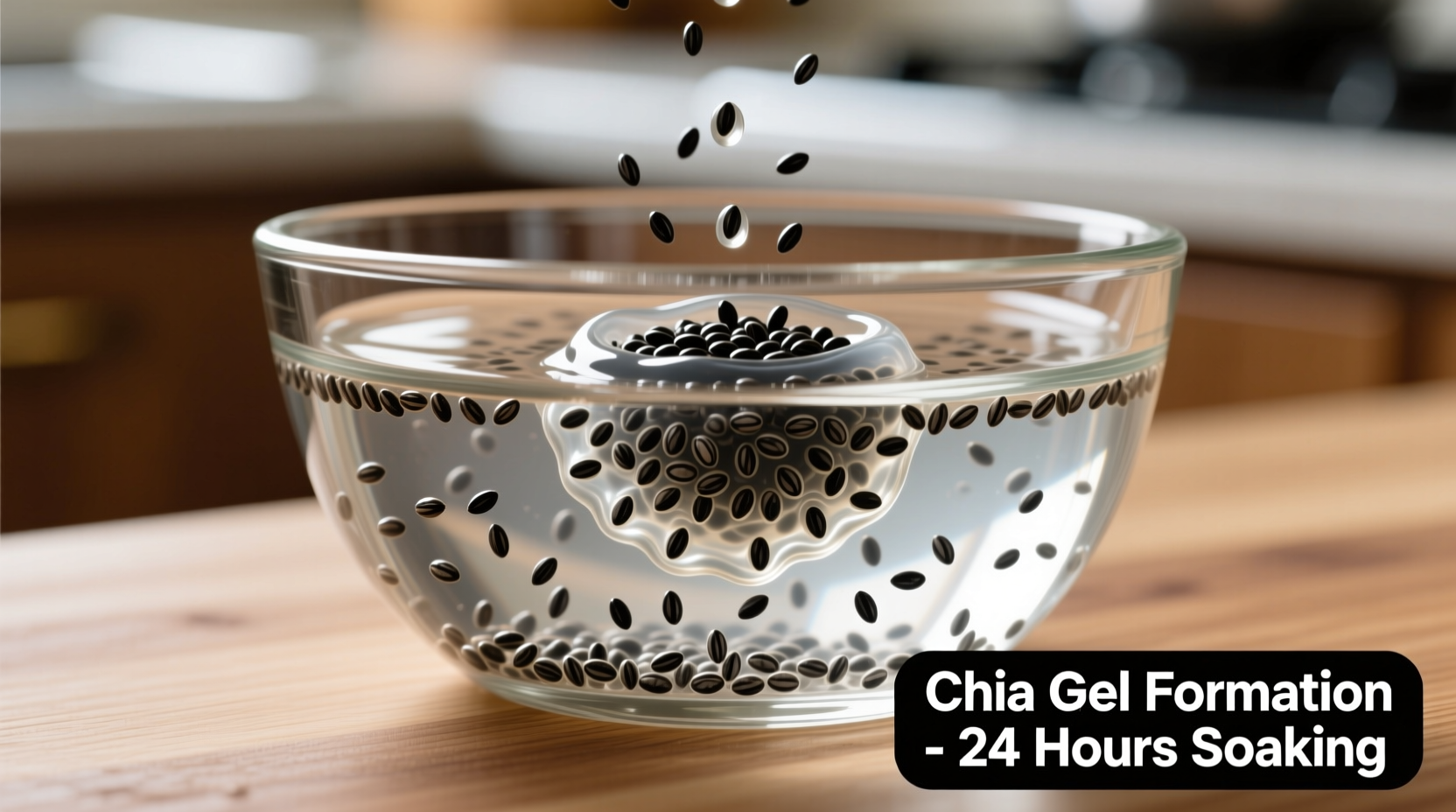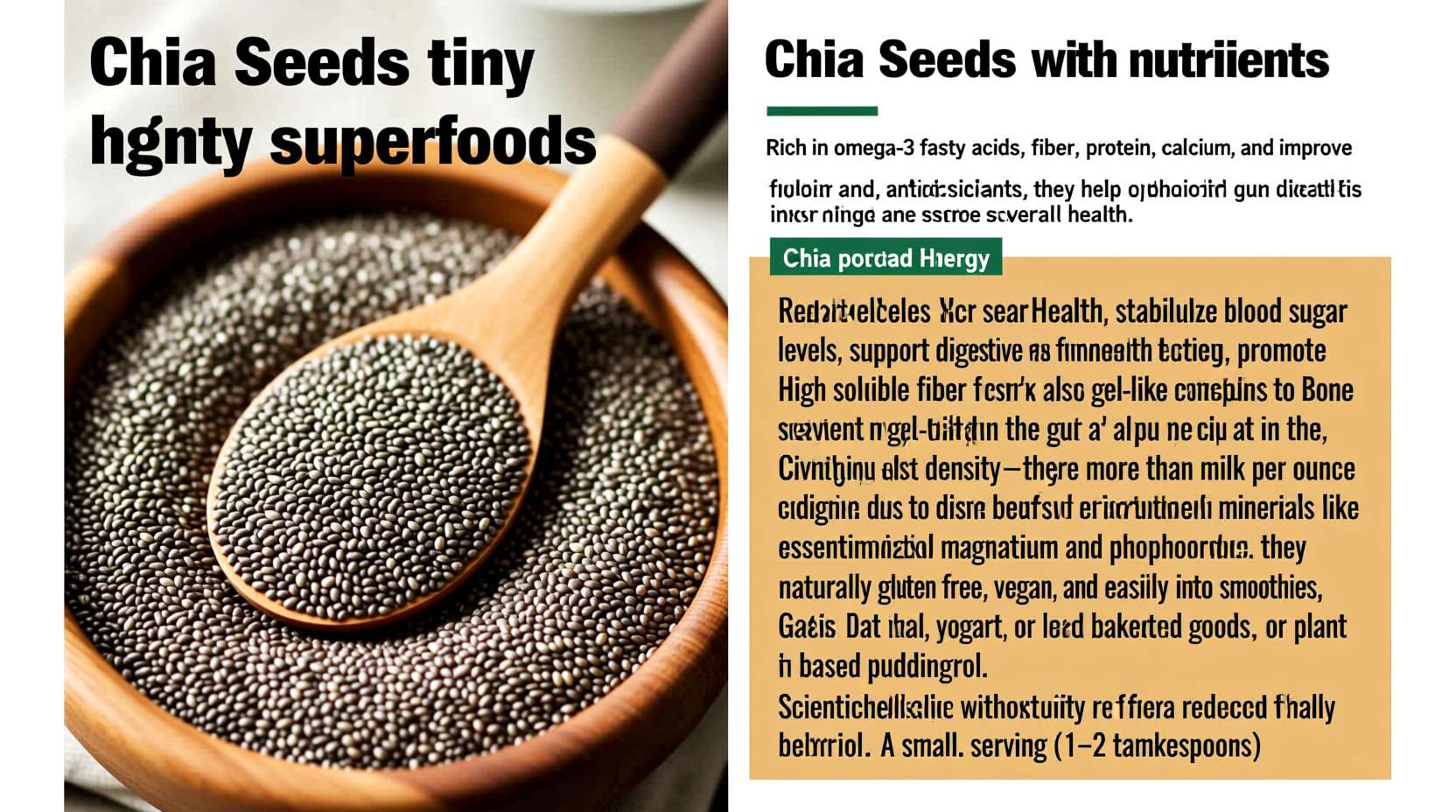Discover why these ancient Aztec superfoods have earned their modern reputation as one of nature's most complete nutritional packages. Whether you're managing blood sugar, seeking plant-based nutrition, or simply optimizing your daily diet, understanding chia seeds' scientifically-backed benefits can transform your approach to healthy eating.
Chia Seeds: From Ancient Superfood to Modern Nutrition Powerhouse
Chia seeds (Salvia hispanica) have nourished civilizations for over 3,500 years. The Aztecs and Mayans relied on these tiny seeds as a staple food source, valuing them for sustained energy during long journeys and battles. Today, modern science confirms what ancient cultures intuitively knew - chia seeds pack an extraordinary nutritional punch that supports multiple aspects of human health.
Unlike many trendy "superfoods," chia seeds offer scientifically validated benefits across several critical health areas. Their unique combination of nutrients works synergistically to deliver results you can feel - from stabilized energy levels to improved digestion and cardiovascular protection.
The Nutritional Profile That Sets Chia Seeds Apart
What makes chia seeds stand out among plant-based foods? Their exceptional nutrient density. A single ounce (28 grams) delivers:
| Nutrient | Chia Seeds (1 oz) | Flaxseeds (1 oz) | Almonds (1 oz) |
|---|---|---|---|
| Fiber | 11g (39% DV) | 8g (29% DV) | 3.5g (14% DV) |
| Omega-3s | 4,915mg | 6,388mg | 180mg |
| Calcium | 177mg (18% DV) | 80mg (8% DV) | 76mg (8% DV) |
| Protein | 4.7g | 5.1g | 6g |
Source: USDA FoodData Central (2023). Note: DV = Daily Value based on a 2,000-calorie diet
This comparison reveals chia's unique advantages - particularly its superior calcium content and balanced omega-3 to omega-6 ratio. While flaxseeds contain slightly more omega-3s, chia seeds offer greater versatility since they don't require grinding to access their nutrients and have a longer shelf life.

Evidence-Based Health Benefits You Can Trust
Cardiovascular Protection Through Multiple Mechanisms
Chia seeds support heart health through several scientifically documented pathways. Their high alpha-linolenic acid (ALA) content - a plant-based omega-3 fatty acid - helps reduce inflammation and may lower blood pressure. A 2012 study published in the Journal of Nutrition found that chia seed consumption significantly reduced systolic blood pressure in individuals with hypertension.
Additionally, chia's soluble fiber forms a gel when mixed with liquid, which binds to cholesterol in the digestive tract and helps remove it from the body. Research in the British Journal of Nutrition demonstrated that daily chia consumption reduced LDL cholesterol by 12% in animal models, suggesting potential benefits for human cardiovascular health.
Blood Sugar Regulation for Metabolic Health
One of chia seeds' most impressive benefits is their ability to stabilize blood sugar levels. The combination of high fiber and healthy fats slows carbohydrate digestion, preventing blood sugar spikes. A clinical trial published in Diabetes Care showed that adding chia seeds to bread reduced the glycemic response by 39% compared to regular bread.
This makes chia seeds particularly valuable for people with insulin resistance or type 2 diabetes. The seeds' gel-forming property also creates a feeling of fullness that helps prevent overeating - a crucial factor in weight management and metabolic health.
Digestive Wellness Through Dual Fiber Action
With 11 grams of fiber per ounce, chia seeds significantly exceed the average American's daily fiber intake. What makes chia special is their balanced ratio of soluble to insoluble fiber (approximately 40:60). Soluble fiber forms the characteristic gel that slows digestion and feeds beneficial gut bacteria, while insoluble fiber adds bulk to stool and promotes regular bowel movements.
Research in the European Journal of Clinical Nutrition demonstrated that chia seed consumption increased stool weight by 35% and reduced transit time through the colon, suggesting significant benefits for digestive health and constipation relief.
Bone Health Support Beyond Dairy
For those seeking plant-based calcium sources, chia seeds deliver impressive results. One ounce provides 18% of the daily calcium requirement - more than milk by weight. But chia's bone benefits don't stop there. They also contain magnesium, phosphorus, and boron - nutrients essential for calcium absorption and bone mineralization.
A study in the Journal of Medicinal Food noted that chia seeds' complete mineral profile makes them particularly valuable for maintaining bone density, especially for individuals who avoid dairy products or have lactose intolerance.
Practical Guidance for Maximizing Chia Seed Benefits
Optimal Daily Intake and Preparation Methods
For most adults, 1-2 ounces (28-56 grams) of chia seeds daily provides substantial benefits without digestive discomfort. Start with 1 tablespoon daily and gradually increase to allow your digestive system to adjust.
Maximize nutrient absorption with these preparation techniques:
- Hydration is key: Always consume chia seeds with adequate liquid (at least 10 times their volume) to prevent potential choking hazards and allow proper gel formation
- Soaking method: Mix 1 part chia seeds with 9 parts liquid and let sit for 15-30 minutes to create chia gel, which enhances digestibility
- Sprinkling technique: Add dry seeds to finished dishes like yogurt or salads for added crunch and nutrition
- Smoothie booster: Blend dry seeds directly into smoothies for thickening and nutrient enhancement
Real-World Incorporation Strategies
Make chia seeds part of your daily routine with these practical applications:
- Morning routine: Stir chia gel into oatmeal or smoothies for sustained energy
- Lunch enhancement: Sprinkle dry seeds on salads for added crunch and nutrition
- Healthy baking: Replace eggs with chia eggs (1 tbsp seeds + 3 tbsp water = 1 egg)
- Hydration boost: Create chia fresca by mixing seeds with water, lime juice, and a touch of honey
- Dinner addition: Stir chia seeds into soups or stews during the last 10 minutes of cooking
Important Considerations for Safe Consumption
While chia seeds offer numerous benefits, certain considerations ensure safe and effective use:
Contextual Boundaries: Who Should Exercise Caution
Chia seeds' high fiber content and blood-thinning properties mean some individuals should consult healthcare providers before regular consumption:
- Individuals taking blood pressure medications should monitor levels closely as chia may enhance medication effects
- People on blood thinners like warfarin should maintain consistent intake and consult their doctor
- Those with swallowing difficulties should always consume chia seeds pre-soaked in adequate liquid
- Individuals with inflammatory bowel disease during flare-ups may need to limit intake initially
A 2020 review in the Journal of the American College of Nutrition noted that while chia seeds are generally safe, proper hydration with consumption is essential to prevent potential esophageal obstruction, especially for those with existing swallowing difficulties.
Quality Selection Guidelines
Not all chia seeds deliver equal benefits. Follow these selection criteria:
- Choose organic certification to avoid pesticide residues
- Opt for black or milled white seeds, which typically contain higher antioxidant levels
- Check for freshness by ensuring seeds are dry and free from clumping
- Purchase from reputable suppliers with transparent sourcing information
- Store in airtight containers in cool, dark places to preserve omega-3 content
Frequently Asked Questions About Chia Seeds
Can chia seeds help with weight loss?
Yes, chia seeds can support weight management through multiple mechanisms. Their high fiber content (11g per ounce) creates significant satiety, reducing overall calorie intake. The gel-forming property slows digestion, stabilizing blood sugar and preventing cravings. Research published in the Nutrition Research journal found that chia seed consumption reduced food intake at subsequent meals by 25-30% compared to control groups. However, chia seeds should be part of a balanced diet and healthy lifestyle for optimal weight management results.
How do chia seeds compare to flaxseeds for omega-3 benefits?
Both seeds provide plant-based omega-3s, but with key differences. Chia seeds contain approximately 4,915mg of ALA omega-3 per ounce, while flaxseeds offer about 6,388mg. However, chia seeds have a more favorable omega-6 to omega-3 ratio (approximately 0.3:1 versus flax's 0.26:1), which may provide better inflammatory balance. Crucially, chia seeds don't require grinding for nutrient absorption and maintain freshness longer due to natural antioxidants. Flaxseeds must be ground immediately before consumption to access their omega-3s and spoil more quickly. For convenience and shelf stability, chia seeds often prove more practical for daily use.
Do chia seeds need to be soaked before eating?
Soaking chia seeds isn't mandatory but offers significant benefits. When soaked in liquid (typically 1 part seeds to 9 parts liquid), they form a gel that enhances digestibility and nutrient absorption. The soaking process also reduces potential digestive discomfort from their high fiber content. Consuming dry chia seeds requires adequate concurrent hydration to prevent potential esophageal issues, as they rapidly absorb liquid in the digestive tract. For most people, soaking for 15-30 minutes creates chia gel that's easier to incorporate into recipes and gentler on the digestive system, especially when first introducing chia seeds to your diet.
Can chia seeds replace fish as an omega-3 source?
Chia seeds provide alpha-linolenic acid (ALA), a plant-based omega-3, but cannot fully replace fish-derived EPA and DHA. While ALA offers cardiovascular and anti-inflammatory benefits, the body converts only about 5-10% of ALA to EPA and less than 0.5% to DHA. For individuals who don't consume fish, chia seeds remain a valuable omega-3 source, but may need supplementation with algae-based DHA/EPA for optimal brain and eye health. The American Heart Association recommends at least two servings of fatty fish weekly for direct EPA/DHA intake, with plant-based sources like chia seeds serving as complementary sources.











 浙公网安备
33010002000092号
浙公网安备
33010002000092号 浙B2-20120091-4
浙B2-20120091-4